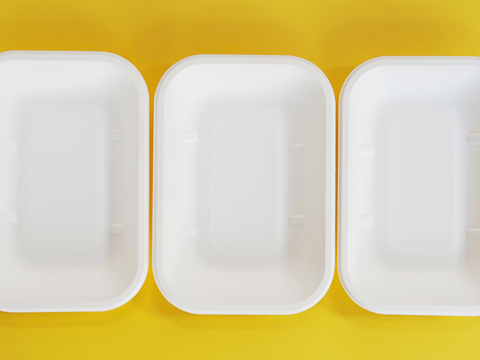
Yangi intends to replace traditional plastic food trays with a dry-formed, fibre-based alternative geared towards ready meals, meat products, and takeaway options.
The tray is produced using Yangi’s Cellera dry-forming technology. This is described as a cost- and resource-efficient solution that lowers carbon emissions ‘significantly’ and reduces the environmental impact of wet moulding and conventional plastic packaging.
Made entirely from 100% renewable FSC fibres, the trays can be recycled in existing paper waste streams globally. It is set to meet increasing demand for eco-designed packaging products in the food industry.
Small-scale production currently offers physical prototypes for early-stage testing, produced at the company’s state-of-the-art production facility in Varberg, Sweden. Brands and packaging producers are encouraged to work with Yangi to refine and validate the pack in preparation for full validation and market launch.
Going forward, Yangi is working through its options for lamination, sealing, embossing, debossing, and labelling the tray, as well as potential lids. It intends to gauge how each element works together to improve the packaging and align with market needs.
It also seeks to unlock more complex designs, deeper-formed products, and barriers to protect products with a longer shelf life.
Hanna Rüdel, chief commercial officer at Yangi, comments: “Today marks a key moment as we unveil our fibre-based food tray, building on the positive response of our fibre-based container lid for dry and ambient food launched in June this year, both products advancing our commitment to deliver sustainable solutions for the food industry.
“As Yangi continues to innovate, we offer packaging producers and brands the opportunity to work closely with our team on product development and validation. This collaborative approach enables early adopters to stay ahead of market trends by incorporating fiber-based packaging as part of their offer.”
Johann Kaiser, CEO at Yangi, adds: “With our fully industrialized machine platform Cellera and customized packages of value-added services, we provide an all-in-one solution for packaging producers ready to embrace fibre-based packaging. We’re actively partnering with forward-thinking leaders who want to shape the future of sustainable packaging, offering them a competitive edge in their market.”
In a similar development, Yangi previously unveiled a fibre-based container lid for dry and ambient food products. The cellulose-based lid is manufactured via a dry forming production process and aims to meet growing consumer preference for environmentally conscious options.
Other fibre-based trays have come to light recently, including a photographic print pressed board tray for Morrisons’ private label steak portfolio, developed in collaboration with Graphic Packaging. The pack is said to be the ‘first on the market’ to incorporate Graphic Packaging’s advanced photo-quality print technology on the face of the tray and will apparently eliminate 250 tonnes of plastic from the retailer’s supply chain every year.
Meanwhile, H-Pack claims to have achieved an ‘industry first’ with standalone, octagonal kraft containers and accompanying PET lids. Designed for high-end hot and cold foods, they are designed to reflect the premium nature of a product and justify its higher price.
On a wider scale, the EU-wide REDYSIGN project is working to develop recyclable, wood-derived packaging alternatives for fresh meat products. It plans to manufacture every component of a pack – constituting a tray, barrier coating, pad and film – from wood-derived materials; and, in its first year, it has reported ‘interesting results’ in the formulation of fibre for film-tray adhesion.
If you liked this story, you might also enjoy:
The ultimate guide to the Packaging and Packaging Waste Regulation in 2024
How are the top brands progressing on packaging sustainability?
Sustainable Innovation Report 2024: Current trends and future priorities
Everything you need to know about global plastic sustainability regulation














No comments yet